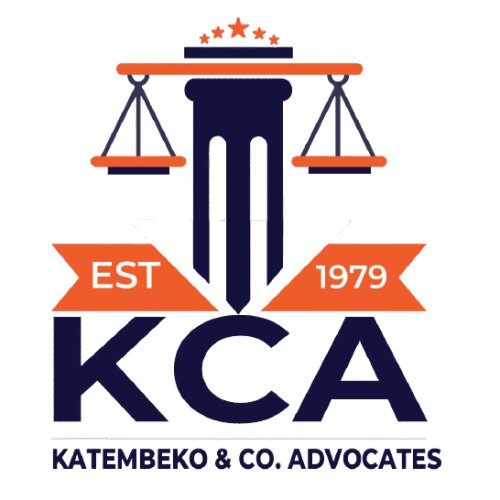Best Transportation Lawyers in Uganda
Share your needs with us, get contacted by law firms.
Free. Takes 2 min.
Or refine your search by selecting a city:
List of the best lawyers in Uganda
About Transportation Law in Uganda
Transportation in Uganda consists of various modes, including road, rail, water, and air. As a growing economy, Uganda's transport sector is essential for trade and mobility, contributing significantly to the country's economic development. The government has been making efforts to improve transportation infrastructure and management, focusing on road networks, safety regulations, and compliance with international standards. Transport laws in Uganda regulate these activities, ensuring safety and efficiency for individuals and businesses alike.
Why You May Need a Lawyer
Legal assistance in transportation is often required in a variety of situations. These include dealing with traffic violations, litigating road accident claims, disputes over cargo transport, licensing and compliance issues, and business contracts related to logistics and transportation services. Additionally, navigating regulations set by the Uganda National Roads Authority (UNRA) or the Ministry of Works and Transport can be complex and might necessitate professional guidance to ensure compliance and protect your rights.
Local Laws Overview
Key aspects of transportation law in Uganda include regulations around vehicle registration, driver licensing, road safety measures, and the enforcement of standards for commercial transport services. The Traffic and Road Safety Act is a significant piece of legislation, addressing the control of road transport, establishing guidelines for vehicle safety, driver responsibility, and the handling of road accidents. Infrastructure development and public-private partnerships are also governed by legal frameworks to ensure transparency and accountability in the transportation sector.
Frequently Asked Questions
What are the penalties for traffic violations in Uganda?
The Traffic and Road Safety Act outlines various penalties for traffic violations, including fines, license suspensions, and in severe cases, imprisonment. Offenses can range from speeding and reckless driving to driving under the influence of alcohol.
How can I file a claim for a road accident?
In the event of a road accident, it is crucial to report the incident to the police and seek medical attention if necessary. To file a claim, you should gather evidence such as photographs, witness statements, and police reports. Consult with a legal professional to guide you through the process of seeking compensation.
What are the requirements for obtaining a commercial driver's license?
To obtain a commercial driver's license in Uganda, applicants must meet specific age requirements, pass a written test, demonstrate competency in driving, and undergo a medical examination to ensure physical fitness for operating commercial vehicles.
Can I transport goods without a permit?
Transporting goods within Uganda may require permits depending on the nature of the cargo. Commercial transport companies must comply with licensing regulations set forth by the Ministry of Works and Transport.
What is the role of the Uganda National Roads Authority (UNRA)?
UNRA is responsible for the development, maintenance, and management of the national road network. They also ensure compliance with transportation policies and standards aimed at improving road safety and infrastructure development.
How are transportation disputes resolved in Uganda?
Transportation disputes can be resolved through negotiation, mediation, or litigation. Legal proceedings can be initiated in situations involving breaches of contract, damage claims, or regulatory non-compliance. Seeking legal advice is recommended to navigate these disputes effectively.
What regulations govern public transport in Uganda?
Public transport is regulated under the Traffic and Road Safety Act, which prescribes operational standards, licensing requirements, and safety measures for operators of bus and taxi services. Regular inspections are conducted to ensure compliance.
How can I start a transport business in Uganda?
Starting a transport business involves registering your business, obtaining the necessary licenses and permits, and complying with safety regulations. You may need to consult with legal and business professionals to address legal aspects and operational planning.
What initiatives are in place to improve transport infrastructure?
The government of Uganda is actively working on projects to enhance road networks, expand public transit systems, and promote sustainable transport solutions. Public-private partnerships are encouraged to facilitate infrastructure development.
How are environmental concerns addressed in transport regulations?
Environmental concerns are addressed through regulations promoting fuel-efficient vehicles, emission standards, and policies that encourage environmentally friendly transport options. Compliance with these regulations is mandatory to mitigate environmental impact.
Additional Resources
For further assistance and information, you can consider reaching out to the Ministry of Works and Transport, Uganda National Roads Authority (UNRA), and the Uganda Transport Licensing Board. These governmental bodies provide valuable insights and services related to transportation laws and infrastructure.
Next Steps
If you need legal assistance in transportation, consider consulting with a licensed attorney who specializes in transportation law. They can provide guidance tailored to your specific legal issues, help you understand your rights and obligations, and represent you in legal proceedings if necessary. Preparing documentation and understanding the legal framework will be crucial steps in effectively addressing any transport-related legal matters.
Lawzana helps you find the best lawyers and law firms in Uganda through a curated and pre-screened list of qualified legal professionals. Our platform offers rankings and detailed profiles of attorneys and law firms, allowing you to compare based on practice areas, including Transportation, experience, and client feedback.
Each profile includes a description of the firm's areas of practice, client reviews, team members and partners, year of establishment, spoken languages, office locations, contact information, social media presence, and any published articles or resources. Most firms on our platform speak English and are experienced in both local and international legal matters.
Get a quote from top-rated law firms in Uganda — quickly, securely, and without unnecessary hassle.
Disclaimer:
The information provided on this page is for general informational purposes only and does not constitute legal advice. While we strive to ensure the accuracy and relevance of the content, legal information may change over time, and interpretations of the law can vary. You should always consult with a qualified legal professional for advice specific to your situation.
We disclaim all liability for actions taken or not taken based on the content of this page. If you believe any information is incorrect or outdated, please contact us, and we will review and update it where appropriate.
Browse transportation law firms by city in Uganda
Refine your search by selecting a city.















